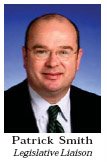The never-ending saga in Memphis continues, as the Commercial Appeal reports that investigators have found three more instances of convicted felons voting in the special election to fill the Dist. 29 Senate seat vacated by Ophelia Ford’s brother, John Ford, after his indictment on extortion and bribery charges.
That brings to 12 the number of documented illegal votes out of her margin of 13 over Republican Terry Roland. As many as four dozen more are contested by Roland on the basis of votes by people living outside the district.
The Senate earlier took a preliminary (committee of the whole) vote to void the election, only to have Ophelia storm to the federal courtroom of family pal Judge Bernice Donald — whom brother Harold Ford Sr. had recommended for the bench while in Congress. One might wonder how Miss Ophelia could get so lucky as to draw Judge Donald when federal judges hear cases on a rotating basis, but having her niece as the judge’s docket clerk couldn’t have hurt any.
The Tennessean quoted Ford yesterday, saying
“Whatever we have to do I’m going to be the senator come this fall,” Ford said Wednesday following the meeting of special Senate committee investigating the District 29 election. “I’m the senator right now and I’m the senator until the election is voided.”
Hmmm. I’m sure she means she’ll do whatever she can get away with… legal was never exactly a barrier in that family.


